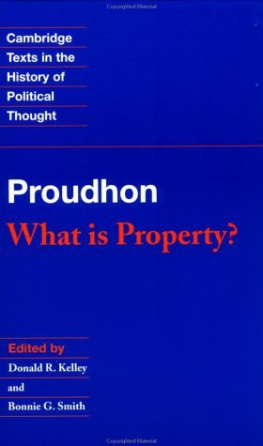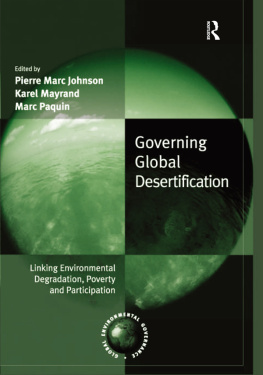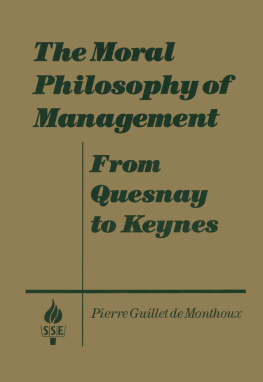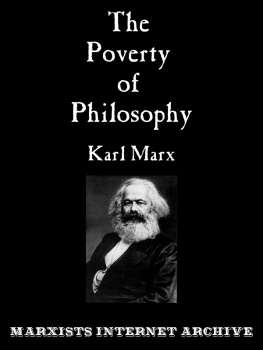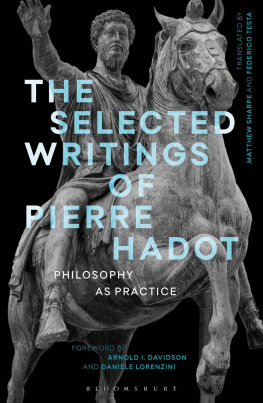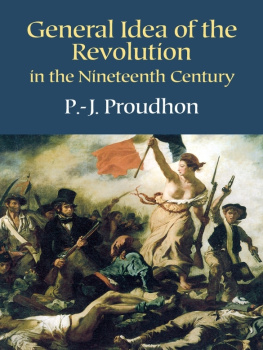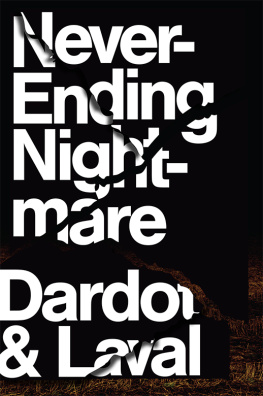System of Economic Contradictions
Or, the Philosophy of Poverty
by
Pierre-Joseph Proudhon
1847
 All Your Books Are Belong To Us !
All Your Books Are Belong To Us ! http://c3jemx2ube5v5zpg.onion
System of Economic Contradictions
Or, the Philosophy of Poverty
Copyright 1847 Pierre-Joseph Proudhon
Source: Rod Hay's Archive for the History of Economic Thought, McMaster University
Retrieved from marxists.org
Translated from French by Benjamin Tucker, 1888
The System of Economic Contradictions, or Philosophy of Poverty (French: Systme des contradictions conomiques ou Philosophie de la misre often erroneously referred to as The Philosophy of Misery) is a work by Pierre-Joseph Proudhon published in 1846 by Guillaumin et Cie, Paris. It inspired Karl Marx to write his rejoinder The Poverty of Philosophy.
Contents
Introduction: The hypothesis of a God
Before entering upon the subject-matter of these new memoirs, I must explain an hypothesis which will undoubtedly seem strange, but in the absence of which it is impossible for me to proceed intelligibly: I mean the hypothesis of a God.
To suppose God, it will be said, is to deny him. Why do you not affirm him?
Is it my fault if belief in Divinity has become a suspected opinion; if the bare suspicion of a Supreme Being is already noted as evidence of a weak mind; and if, of all philosophical Utopias, this is the only one which the world no longer tolerates? Is it my fault if hypocrisy and imbecility everywhere hide behind this holy formula?
Let a public teacher suppose the existence, in the universe, of an unknown force governing suns and atoms, and keeping the whole machine in motion. With him this supposition, wholly gratuitous, is perfectly natural; it is received, encouraged: witness attraction an hypothesis which will never be verified, and which, nevertheless, is the glory of its originator. But when, to explain the course of human events, I suppose, with all imaginable caution, the intervention of a God, I am sure to shock scientific gravity and offend critical ears: to so wonderful an extent has our piety discredited Providence, so many tricks have been played by means of this dogma or fiction by charlatans of every stamp! I have seen the theists of my time, and blasphemy has played over my lips; I have studied the belief of the people, this people that Brydaine called the best friend of God, and have shuddered at the negation which was about to escape me. Tormented by conflicting feelings, I appealed to reason; and it is reason which, amid so many dogmatic contradictions, now forces the hypothesis upon me. A priori dogmatism, applying itself to God, has proved fruitless: who knows whither the hypothesis, in its turn, will lead us?
I will explain therefore how, studying in the silence of my heart, and far from every human consideration, the mystery of social revolutions, God, the great unknown, has become for me an hypothesis, I mean a necessary dialectical tool.
I
If I follow the God-idea through its successive transformations, I find that this idea is preeminently social: I mean by this that it is much more a collective act of faith than an individual conception. Now, how and under what circumstances is this act of faith produced? This point it is important to determine.
From the moral and intellectual point of view, society, or the collective man, is especially distinguished from the individual by spontaneity of action, in other words, instinct. While the individual obeys, or imagines he obeys, only those motives of which he is fully conscious, and upon which he can at will decline or consent to act; while, in a word, he thinks himself free, and all the freer when he knows that he is possessed of keener reasoning faculties and larger information, society is governed by impulses which, at first blush, exhibit no deliberation and design, but which gradually seem to be directed by a superior power, existing outside of society, and pushing it with irresistible might toward an unknown goal. The establishment of monarchies and republics, caste-distinctions, judicial institutions, etc., are so many manifestations of this social spontaneity, to note the effects of which is much easier than to point out its principle and show its cause. The whole effort, even of those who, following Bossuet, Vico, Herder, Hegel, have applied themselves to the philosophy of history, has been hitherto to establish the presence of a providential destiny presiding over all the movements of man. And I observe, in this connection, that society never fails to evoke its genius previous to action: as if it wished the powers above to ordain what its own spontaneity has already resolved on. Lots, oracles, sacrifices, popular acclamation, public prayers, are the commonest forms of these tardy deliberations of society.
This mysterious faculty, wholly intuitive, and, so to speak, super-social, scarcely or not at all perceptible in persons, but which hovers over humanity like an inspiring genius, is the primordial fact of all psychology.
Now, unlike other species of animals, which, like him, are governed at the same time by individual desires and collective impulses, man has the privilege of perceiving and designating to his own mind the instinct or fatum which leads him; we shall see later that he has also the power of foreseeing and even influencing its decrees. And the first act of man, filled and carried away with enthusiasm (of the divine breath), is to adore the invisible Providence on which he feels that he depends, and which he calls GOD, that is, Life, Being, Spirit, or, simpler still, Me; for all these words, in the ancient tongues, are synonyms and homophones.
I am Me, God said to Abraham, and I covenant with Thee..... And to Moses: I am the Being. Thou shalt say unto the children of Israel, The Being hath sent me unto you. These two words, the Being and Me, have in the original language the most religious that men have ever spoken the same characteristic. [1] Elsewhere, when Ie-hovah, acting as law-giver through the instrumentality of Moses, attests his eternity and swears by his own essence, he uses, as a form of oath, I; or else, with redoubled force, I, the Being. Thus the God of the Hebrews is the most personal and wilful of all the gods, and none express better than he the intuition of humanity.
God appeared to man, then, as a me, as a pure and permanent essence, placing himself before him as a monarch before his servant, and expressing himself now through the mouth of poets, legislators, and soothsayers, musa, nomos, numen; now through the popular voice, vox populi vox Dei. This may serve, among other things, to explain the existence of true and false oracles; why individuals secluded from birth do not attain of themselves to the idea of God, while they eagerly grasp it as soon as it is presented to them by the collective mind; why, finally, stationary races, like the Chinese, end by losing it. [2] In the first place, as to oracles, it is clear that all their accuracy depends upon the universal conscience which inspires them; and, as to the idea of God, it is easily seen why isolation and statu quo are alike fatal to it. On the one hand, absence of communication keeps the mind absorbed in animal self-contemplation; on the other, absence of motion, gradually changing social life into mechanical routine, finally eliminates the idea of will and providence. Strange fact! religion, which perishes through progress, perishes also through quiescence.
Notice further that, in attributing to the vague and (so to speak) objectified consciousness of a universal reason the first revelation of Divinity, we assume absolutely nothing concerning even the reality or non-reality of God. In fact, admitting that God is nothing more than collective instinct or universal reason, we have still to learn what this universal reason is in itself. For, as we shall show directly, universal reason is not given in individual reason, in other words, the knowledge of social laws, or the theory of collective ideas, though deduced from the fundamental concepts of pure reason, is nevertheless wholly empirical, and never would have been discovered a priori by means of deduction, induction, or synthesis. Whence it follows that universal reason, which we regard as the origin of these laws; universal reason, which exists, reasons, labors, in a separate sphere and as a reality distinct from pure reason, just as the planetary system, though created according to the laws of mathematics, is a reality distinct from mathematics, whose existence could not have been deduced from mathematics alone: it follows, I say, that universal reason is, in modern languages, exactly what the ancients called God. The name is changed: what do we know of the thing?



